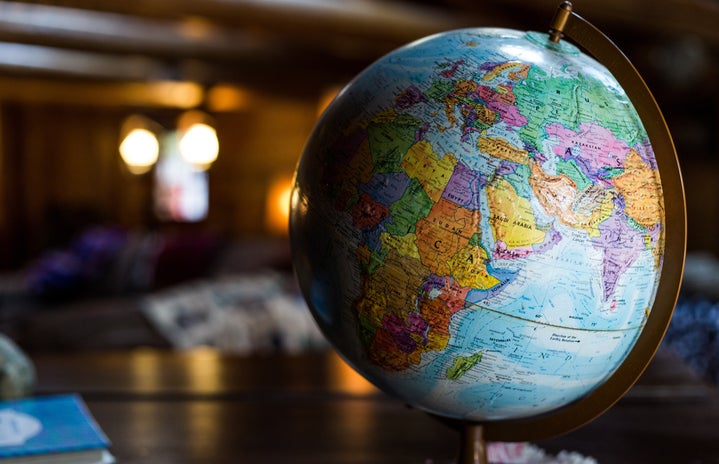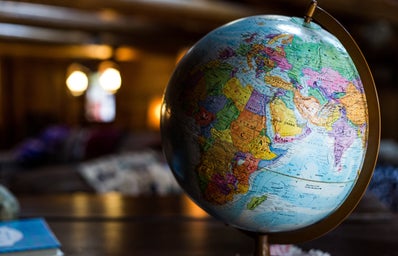Coronavirus came at a time and force that no one had expected. It has put immense pressure on government leaders to find and enforce the best way to keep their citizens safe. I don’t envy their positions. People’s lives are literally on their hands, and this is a true test of their strategic and leadership skills. Here are some unique examples of how various countries are dealing with COVID-19.
1. Panama
Panama is trying to limit the spread of the virus by enforcing a gender-based lockdown. Both genders can only go out two hours at a time, but at different times. Women are allowed to go outside to shop for essential goods on Mondays, Wednesdays, and Fridays. Men will be allowed to leave the house on Tuesdays, Thursdays, and Saturdays. No one is allowed to leave the house on Sundays. While this seems like they have transported back to the 1700s where different genders could not intermingle, it makes me intrigued to see if they will be able to decrease their numbers through this unique method.
2. Sweden
While Panama is taking the global pandemic extremely seriously, Sweden is chillin’ like a villain. They have over 4,500 cases, but they have yet to enforce any serious protocols. They have limited group gatherings that are over 50 people. However, the same does not apply to schools. Schools for everyone under the age of 16 are operating as usual. Restaurants are still offering table service, which also means that people are still socializing. I can’t tell if this is them being irresponsible or extremely strategic.
3. Malaysia
It’s funny how no matter what the situation is, people find a way to put women down. This virus is no exception in Malaysia. On Facebook, the Malaysian women’s ministry wanted to help women cope by providing tips on how they should “behave” during the lockdown. They even trended the hashtag #WomenPreventCOVID19 (in Malay) to make it seem like an empowering initiative. However, it was anything but that. They were promoting posters of women being sarcastic to their husbands, and them asking their wives to stop. Another poster advised women to wear makeup and dress while in the house to be more eye-pleasing for their family. Lastly, a poster asked women to stop nagging their husbands. Luckily, Malaysian women did not have the patience for such ridiculous advice and called out the ministry. The ministry has apologized for the inappropriateness of its messages.
4. India
Have you ever heard of BST? Many South Asians joke by calling it Brown Standard Time, as there is a stereotype that they are always running late to everything. BST even applies when it comes to handling the virus. The first known case of the virus became public on January 30, 2020. Yet, they did not decide to take action until March 24th, 2020. Citizens had been assured that they should not be concerned for weeks. However, at 8 p.m. on March 24th, Prime Minister Narendra Modi announced that the country would be shut down for 3 weeks….starting at midnight….4 hours after the announcement. Transportation, grocery stores and pharmacies were already shutting down. Citizens were told multiple times during the past weeks to not “panic buy.” Therefore, people did not have enough food in their houses to last them 3 weeks. Some didn’t even have the money to buy food. Of course, the upper social class will be able to survive as many can work from home or have savings, but almost the entire lower social class had lost their jobs as much of them were labor-based. This decision put the most vulnerable citizens in the worst position and provided little to no aid for them.
5. Poland
Poland has taken a tech-savvy (and slightly creepy) method to deal with the global pandemic. The government has built an app that mandates coronavirus patients to take a selfie to register in the app. Then, they will randomly start getting notifications asking them to take geo-located selfies to ensure they are still alive and quarantining properly. If they don’t provide a selfie in time, or it seems like they are in the public, the police are alerted. Those that are found guilty of breaking protocols are fined. However, it also helps people have better access to supplies or ask for help. While taking selfies can seem a little… unique, it does provide a high level of enforcement that may be able to help control the spread of the virus.
Different countries are taking different approaches to best accommodate their citizens, as they should. It is interesting how their solutions say so much about the country itself. They show what the countries prioritize the most, and what they don’t consider important. Regardless, all we can hope for is that their unique ways can be proactive in stopping the numbers of cases from increasing.








